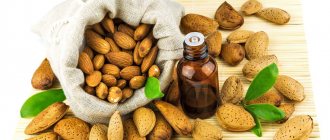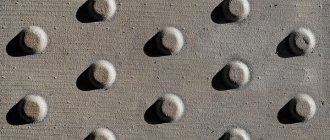Slight redness on the cheeks is usually the first sign of rosacea. This chronic disease is thought to be caused by skin are disturbances in the functioning of the circulatory system. As the disease progresses, redness gradually begins to spread to other areas of the face, such as the forehead, eyelids, nose and chin. In the later stage, rosacea is characterized by pustules, blisters, inflammation and sensitivity of the skin.
Rosacea is usually first diagnosed in middle age, and the severity of the disease varies from person to person. Official medicine cannot currently offer any truly effective treatment, but some natural remedies, such as coconut oil , can help cope with symptoms during an exacerbation.
About the benefits of coconut oil
Biological scientists have identified the following pattern: residents of those areas where coconut palms grow complain less often about problems with blood vessels and look wonderful: their oval faces have smooth and clear outlines, wrinkles appear much later. For example, the population of the African continent knows very well how to use coconut oil not only as a food source, but also as a cosmetic product.
Such palm trees do not grow in our climate, but coconut oil for skin and hair can always be purchased if desired. We'll talk about how to choose a quality product a little later.
Symptoms
Rosacea is quite difficult to diagnose, as the clinical signs of this disease can be mistaken for acne, perioral or seborrheic dermatitis. Rosacea, however, has its own unique set of symptoms, which include:
- spider veins;
- red spots on the central areas of the face (forehead, cheeks, nose and chin);
- burning sensation;
- bumps and irregularities;
- thickening and dry skin;
- swollen eyelids;
Composition of coconut oil
Coconut oil is extracted from coconut pulp, which contains about 70% of the valuable product. First, the white pulp separated from the shell is dried, then crushed and the oil is extracted using hot pressing or cold pressing.
Coconut oil contains a number of beneficial components:
- vitamin B1 – relieves inflammation, has regenerating and rejuvenating properties, is used to combat early wrinkles;
- vitamin B3 (pantothenic acid) is an effective remedy in the fight against age and expression wrinkles;
- vitamin B6 – used in the treatment of various dermatological diseases;
- vitamin B9 – effectively fights acne and other rashes on the face, helps strengthen the natural protective functions of the skin;
- ascorbic acid is a powerful natural antioxidant with anti-inflammatory properties;
- vitamin PP – helps restore normal skin color, has regenerating and wound-healing properties;
- oleic acid – helps restore the membrane structure of epidermal cells, well moisturizes and nourishes the skin;
- lauric acid – has antimicrobial, anti-inflammatory and antibacterial effects, used in the treatment of acne, boils and pimples;
- caprylic acid – normalizes the functioning of the sebaceous glands, used in the care of oily skin;
- hyaluronic acid – intensively moisturizes the skin, promotes cell regeneration;
- palmitic and stearic acid – have whitening properties and are effective for pigmentation on the face and body.
Beneficial properties of coconut oil
Coconut oil has a number of beneficial qualities:
- has a powerful antiseptic and antibacterial effect, so it effectively fights various skin diseases, incl. acne and pimples;
- nourishes and moisturizes the skin well, helps retain moisture in the epidermal cells;
- effectively cleanses the dermis of various impurities, so it can be used to remove makeup;
- this is an absolutely safe product that can even be used to care for delicate eyelid skin;
- promotes the regeneration of epidermal cells, smoothes wrinkles and prevents the appearance of new ones;
- after application, it forms an invisible film on the surface of the skin, which protects it from the harmful effects of the environment;
- protects the skin from ultraviolet radiation, so can be used as a body protectant before and after tanning;
- dries oily skin and prevents acne formation;
- Suitable for lip care.
The main components of coconut oil are polyunsaturated fatty acids Omega-6 and Omega-3. They are included in caprylic, palmitic, stearic and other acids found in the oil of this nut. Acids have a beneficial effect on all systems of the human body and help prevent many diseases:
- Coconut oil, used orally, solves the problem of cardiovascular failures: it lowers cholesterol, thereby reducing the risk of atherosclerotic plaques.
- Supports the immune system, strengthening it. Thus, it actively resists viral attacks and infections.
- Helps normalize metabolic processes, so the oil has also found its use as a means for weight loss.
- Acts as a catalyst for the digestive system, while being able to destroy harmful bacteria, fungi and parasites.
- Taking coconut oil is also indicated for diabetics: it is effective in relation to insulin and normalization of metabolism.
- Applying coconut oil to infected skin areas affected by bacteria promotes rapid healing of the epidermis: the oil acts as an antibacterial agent, killing germs.
- It has a beneficial effect on a person’s overall mood. Rubbing oil into your temples is not only aromatherapy (the oil smells very good), but also anti-stress. The substances contained in the oil are recognized as active antipsychotics that have the ability to have a beneficial effect on the nervous system.
- The effectiveness of coconut oil in cosmetology is an indisputable fact: the oil acts as a rejuvenating and regenerating agent on the skin of the face, body and hair.
Benefits of coconut oil for facial skin
- Using coconut oil on the face is known to solve the problem of irregular and uneven tanning. Applied before sunbathing, it will not only prevent your face from getting sunburned, but will also give it a nice, even golden color.
- The oil is included in creams with a lifting effect, and using the oil as an independent skin care product gives the effect several times greater. This tightening effect of the oil on the skin of the face is due to the fact that the active substances contained in it affect cellular respiration, and therefore restore the skin.
- Skin cells under the influence of coconut oil acquire the ability to self-rejuvenate.
- Wrinkles on the face are significantly reduced, the skin becomes silky and soft. Elastin and collagen begin to be produced on a much larger scale, and the skin becomes elastic again.
- Interestingly, the use of oil is recommended for both oily and dry skin. In both cases, its action is aimed at eliminating the shortcomings of the skin: the sebaceous glands, which intensively secrete secretions, normalize their work, which makes oily skin less greasy, while dry skin, on the contrary, begins to moisturize.
- Coconut oil is an excellent moisturizer for facial skin and hair. It can be used both in winter, when the skin begins to peel off under the influence of cold, and in summer, when the face dries out from the heat.
- The oil has also found its use as a hair growth stimulator. To give your eyelashes volume, you can simply lubricate them daily with coconut oil. The same applies to eyebrows and all hair in general. Applying oil to hair before washing for two hours is an excellent mask for hair thickness and growth.
History of discovery and beginning of use
Coconut oil can be produced through dry or wet processing.
Dry processing involves drying coconut meat to create kernels, pressing them to extract the oil, then bleaching and deodorizing them.
In wet processing, coconut oil is extracted from raw coconut meat—instead of dried—to create virgin coconut oil. This helps preserve the coconut flavor and results in a lower smoke point.
Research suggests that pure coconut oil may be more effective than refined coconut oil in preventing oxidation and neutralizing free radicals, which can damage cells and lead to inflammation and disease.
While some people think that coconut oil clogs pores, significant research shows that it may actually help treat acne.
The inflammatory condition and many of the medications used to treat it work by reducing inflammation.
Since coconut oil and its components can help reduce inflammation in the body, it can also help treat acne.
Additionally, the antibacterial properties of the medium chain fatty acids in coconut oil may also help reduce acne.
Numerous studies have shown that lauric acid, which makes up nearly half of the fatty acids in coconut oil, has been shown to kill a strain of bacteria associated with acne.
In fact, test tube and animal studies have shown that lauric acid is more effective than benzoyl peroxide at preventing the growth of acne-causing bacteria.
Along with lauric acid, caproic acid has anti-inflammatory and antibacterial properties.
To get the best results, coconut oil should be applied directly to the skin where acne occurs.
Skin moisturizing in cosmetology
A two-week study found that coconut oil significantly improved skin hydration and was as effective as mineral oil.
It has also been shown to help treat eczema, a skin condition characterized by scaly, itchy rashes.
A study comparing the effects of olive oil and coconut oil in 52 adults with eczema found that using coconut oil helped reduce dryness and also helped treat eczema.
Another study found similar results, showing that coconut oil resulted in a 68% reduction in eczema severity, making it significantly more effective than mineral oil in treating eczema.
Coconut oil can help maintain its function as a barrier against bacteria, promote scar healing, and maintain overall skin integrity.
The Italian traveler Marco Polo in 1280, on an expedition to Polynesia, first described the coconut palm as a tree, which translated means “monkey”. At that time, Indian women were distinguished by the beauty of their skin and hair. And all this thanks to the use of coconut oil.
Cosmetologists give several tips on using coconut oil for the face against wrinkles.
Refined oil is inferior to non-refined oil in terms of the presence of useful substances in it, and during use it does not clog pores, the more liquid consistency is convenient to work with, and the skin of the face, eyelids and around the eyes tolerates it more easily.
Such cosmetics apply better and give results faster if they are heated to a temperature slightly above body temperature. In this case, you should not use additives in the form of ethereal extracts, since their benefit after evaporation is reduced to zero. High temperature will also spoil the composition, where one of the components is a raw egg (it may curl).
To maintain dry facial skin and eliminate fine wrinkles, cosmetologists recommend adding moisturizing ingredients in the form of dairy products, various essential oils or egg yolks to the coconut oil base.
After procedures with a coconut component, rinse off the residue well with a cotton swab dipped in warm milk to avoid stretch marks on the facial skin. After which it is advisable to use foam or gel for washing, rinsing everything off with water when finished.
We invite you to familiarize yourself with Anti-Wrinkle Mask with Aloe
How to choose and where to buy a natural product
All of the above beneficial properties that coconut oil has for the face may not be noticeable if you choose the wrong product. When purchasing such a product, there are many factors to consider:
- Smell . A good oil smells like a freshly cracked coconut, i.e. It has a very subtle, barely perceptible odor. If the product has a pronounced aroma, then it contains unnatural flavors.
- Color . Good coconut oil is clear or pale yellow in color. A deep yellow color is a clear sign of poorly refined oil.
- Cleaning process . There are refined and unrefined coconut oils. The first type is exposed to high temperatures during the cleaning process, and therefore loses a number of its beneficial properties. To care for the skin of the body and face, it is better to choose an unrefined product, as it is cleaned mechanically and does not contain any additives.
- Spin method . It is recommended to buy cold pressed oil. This product retains maximum of its beneficial properties.
- Package . Choose coconut oil that comes in glass packaging. In glass, this product retains its beneficial properties. Plastic packaging, in turn, is not safe for long-term storage.
Coconut oil is a specific product and not at all cheap, so there are quite a lot of fakes. To avoid getting one of these imitations, which contain harmful chemical additives in addition to natural oil, be extremely careful:
- Buy oil only from trusted manufacturers, never be tempted by the low price. Coconut oil cannot be cheap, so it is sold in small containers. For example, for cosmetic purposes you can use coconut oil for the face, purchased at a pharmacy.
- Check with the seller for oil storage conditions. Under unfavorable conditions (exposure to direct sunlight), the oil can easily deteriorate.
- Pay attention to the appearance of the oil in the bottle. The characteristic cloudy sediment should scare you away, as should the flakes at the bottom.
- When you come home with the purchased oil, place it in the refrigerator. A good natural product will harden at low temperatures.
Causes
It is currently unknown what causes rosacea, but scientists believe there is some genetic predisposition to the condition. In addition, the following factors are identified that contribute to the occurrence of rosacea:
- stress;
- exposure to direct sunlight;
- consumption of alcohol, coffee and caffeinated drinks;
- abuse of spicy foods;
- certain medications, such as corticosteroids and some blood pressure medications;
- some cosmetics and makeup;
- sudden changes in temperature;
Rating of the best manufacturers
We have compiled a list of the best coconut oils for skin and hair that do not dry the skin or cause allergic reactions, are safe and natural:
- "Artisana", USA . Organic cold pressed coconut oil. Cost approx. 930 rub. for 429
- “All Good.” Elemental Herbs", USA . Unrefined organic coconut oil. Suitable for all skin and hair types. Cost approx. 690 rub. for 222 ml.
- Parachut, India . Natural, unrefined, cold-pressed coconut oil. Does not contain chemical components or aromatic additives. Suitable for all skin types. Cost approx. 230 rub. for 100 ml.
- "Blossom", Thailand . Unrefined cold pressed oil. Ideal for hair. Disadvantages include plastic packaging. Cost approx. 650 rub. for 200 ml.
- "Baraka", Sri Lanka . Natural coconut oil. Suitable for both skin and hair care and for cooking. Cost approx. 700 rub. for 200 ml.
- Nutiva, USA . Oil from a large producer of organic products. Also suitable for use in cooking. Cost approx. 800 rub. for 444 ml.
Recommendations
An unprocessed organic product without preservatives, flavors, or chemicals is suitable for cosmetic procedures. Before using coconut oil against wrinkles, make sure there are no individual intolerances. When first used, apply a couple of drops to the back of your elbow. If any signs of allergy appear (hives, burning, itching, redness), stop using it further.
- Svan salt - composition of seasonings in the mixture, use in preparing ojakhuri, lentils with vegetables and shish kebab
- Redundancy payments in 2020 - benefits and compensation
- Gas benefits for pensioners in 2020
Using pure coconut oil
In cosmetology, coconut oil is used in a variety of masks, as well as in its pure form. However, you need to be very careful when using this product in its pure form, as it sometimes dries out the skin.
In its pure form, coconut oil is used as an alternative to store-bought lotions and creams. It is recommended to apply this product to damp skin. It will promote hydration and nutrition, and will also reduce moisture loss.
This product is also used as a moisturizer for hands, and also rubbed into the cuticle to restore nails and accelerate their growth.
Using coconut oil, you can also get rid of rough skin on your heels. To do this, after a shower, apply a natural product to your heels, massage them well, and then put on your socks. In the morning, not a trace will remain of the rough skin.
Natural coconut oil is an excellent sunscreen. It is recommended to be used before and after tanning to reduce UV damage better and prevent sunburn.
In addition, this product is a very effective remedy for stretch marks on the legs and stomach. To eliminate stretch marks, it is recommended to rub this oil into the skin every day after a shower.
How to properly use coconut oil for your face
Oil should not be applied to an unprepared face. The skin of the face must be thoroughly cleansed, all remnants of decorative cosmetics must be removed.
Next, you need to steam your face and clean the open pores using a suitable scrub or peeling.
After cleansing procedures, you can start applying coconut oil to your face, rubbing it with your fingertips strictly along the massage lines. Leave the product to act for 20-30 minutes, then rinse with warm water. It is better to use foam or mousse for washing.
Oil can be used not only as a stand-alone product, it is also used as a main or additional ingredient for masks.
Homemade Cosmetics Recipes with Coconut Oil
Coconut oil is a popular component of homemade face masks. We have compiled a list of the most effective recipes for your beauty:
- Moisturizing cream mask . Mix coconut oil, sour cream (you can also use milk) and honey in equal proportions. Apply the composition to your face for 20 minutes.
- Soft facial scrub . Take 1 tbsp. fresh coffee grounds and mix them with 1 tsp. coconut oil Apply the scrub with massaging movements on your face and rinse with warm water after 5 minutes.
- Scrub for dull skin . Mix 1 tbsp. coconut oil with a little baking soda. Massage your face with this product for 2 minutes. This simple recipe will help you restore a healthy complexion.
- Revitalizing mask for sensitive skin . Soak 50 g of bread crumb in warm milk. Mix it with coconut oil to the consistency of thick sour cream. Apply the composition to your face for 10-15 minutes.
- Toning mask for dry skin . Mix 20 g of yeast with coconut oil to the consistency of thick sour cream, add a couple of drops of vitamin E. Apply the mask to your face for 20 minutes.
- Cleansing mask . Melt 50 g of dark chocolate (70% cocoa) in a water bath, add 1 tbsp. coconut oil Apply the mixture to a clean face, excluding the area around the eyes, for 20 minutes.
- Recipe for the prevention of early wrinkles . Mix 50 ml coconut oil and 1 tsp. vitamin E solution. Regularly apply this mask to your face before going to bed.
- Anti-acne mask . To prepare the medicinal mixture, take 2 tbsp. coconut oil, 1 tsp. lemon juice, 2 tsp. honey, as well as tea tree oil and lavender 5 drops each. Apply the composition to your face for 10 minutes.
- Rejuvenating mask . Mix 1 tsp. coconut oil with 4 drops of rosemary ether. Apply the mixture to your face for 10-15 minutes.
- Mask for aging skin . Dissolve white or blue cosmetic clay in coconut oil (the consistency of the mixture should resemble thick sour cream), add 5 drops of orange essential oil. Apply the composition for 15 minutes on the skin of the face.
- Moisturizing mask . Take 2 teaspoons of orange or tangerine oil, add a few drops of coconut oil. Mix this mixture with cosmetic clay and apply to a previously cleansed face. The mask stays on until the clay dries. The result is a smooth and clean face without signs of dryness and flaking.
- Universal mask for face and hair . Melt 1 tbsp. a spoonful of honey, pour a little coconut oil into it, add the juice of half a lemon. Lubricate your face generously with this solution; you can also apply it to your hair. Keep the mask on for up to an hour. After that, wash it off. The effect is simply stunning: a smooth peach-colored face and shiny, silky hair.
- Remedy against acne and inflammation . Dip a piece of black bread crumb into a solution of coconut oil and milk. Rub the pulp over your face, especially where acne accumulates. Oily skin will begin to dry out, inflammation will subside. Effectively acts on oily and inflammation-prone skin.
For some more great ways to use coconut oil for your face at home, watch the video:
Benefits and harms
Coconut oil can significantly improve skin function, providing facial benefits that include:
- Coconut oil is one of the most effective remedies for getting rid of wrinkles; the skin on the face becomes firm and elastic;
- if there are rashes on the face in the form of acne or inflammation, then coconut oil will also help to cope with them; it is also used for prevention;
- for dry facial skin, this product is also indispensable, since it is a supplier of fluid and oxygen to the cells;
- oil can eliminate small cracks and relieve minor injuries on the face;
- the antioxidant property fully provides coconut extract with the ability to renew and even out the texture;
- can protect against ultraviolet rays and the negative effects of precipitation in the form of rain or snow;
- makes the complexion smoother, eliminating age spots and giving it a healthy skin tone.
Coconut oil is a highly oily product. Possible harm from this cosmetic component is associated with this:
- it is necessary to monitor the amount of the substance used at home; an excess amount can clog the pores on the face, limiting the access of oxygen;
- for the same reason, this product can cause oily shine on the skin, giving an unkempt appearance;
- If you have an individual intolerance to coconut, its extract can also provoke allergic reactions, which manifest themselves in the form of itching on the skin, redness and peeling.










